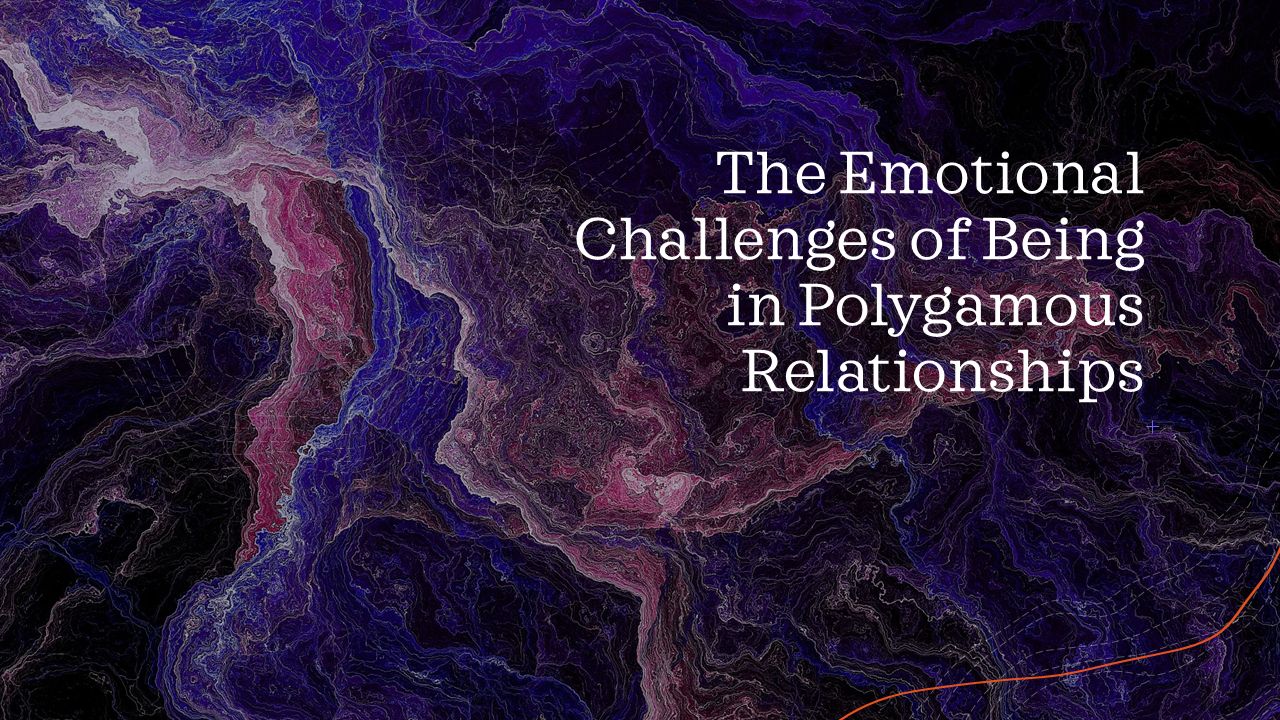What are polygamous relationships? What do spouses think, and how do they feel about this relationship? Do they like being in such a relationship, or do they not?
The concept of polygamy refers to polygamous relationships—the practice of having more than one spouse at the same time. In other words, these are non-monogamous relationships. These can be cases of polygyny, when a man has several wives, or polyandry, when a woman has several husbands.
Polygamous relationships have been practiced in various cultures and religions throughout history. Polygamy is currently illegal in many countries. However, some cultures still practice polygamy, often with specific social and religious contexts.
In the past two decades, there has been notable growth in public, political, and academic awareness of polygamy. According to statistics, polygamy is rare around the world, and it is mostly confined to a few regions. Only about 2% of the global population lives in polygamous households. The cultures of many countries with Muslim majorities permit polygamy, but the practice is rare in many of them (Kramer, 2020).
South Kalimantan and East Java are the two cultures on the Indonesian archipelago where the practice of polygamous relationships is present. How do spouses feel when they are in polygamous relationships?
Muhammad Rezki and his colleagues Sandy Aditya Pradana and Latipun from the University of Muhammadiyah Malang, Indonesia, recently explored the emotional experiences of wives in challenging polygamous relationships in those countries (Rezki, Pradana, & Latipun, 2024).
Exploring the Emotions of Wives in Challenging Polygamous Relationships
The recent study explored the experiences and psychological impacts that wives face in polygamous marriages in two cultures: on the island of Borneo and on the island of Java—the parts of the Indonesian archipelago situated between the Indian and Pacific Oceans.
Researchers collected data through interviews with four participants of ages 23-45 from South Kalimantan and East Java—the two cultural samples on the Indonesian archipelago. Then the authors used a qualitative phenomenological approach, thematically analyzing the results of these interviews.
Let’s consider the main challenges in polygamous marriages, particularly for second wives.
Journeying the Shoreline of Emotions
According to the results of qualitative analysis, second wives perceive their polygamous marriages as a fate determined by God. They often accept these polygamous relationships due to economic necessity or other life circumstances.
Nonetheless, they experience significant challenges, including irritability, hurt feelings, jealousy, nagging tendencies, emotional instability, and dissatisfaction. Psychological impacts include frustration, heartbreak, anxiety, inferiority, and restlessness. Communication plays a critical role in these marriages, with openness fostering positive relationships, while lack of communication exacerbates issues.
Economic conditions also influence the dynamics of polygamous marriages, with financial dependence creating additional stress. The study highlights the complexity of polygamous relationships, emphasizing the need for better communication and emotional support to mitigate challenges.
What Emotional Problems Do Second Wives Encounter in Polygamous Marriages?
Second wives in polygamous marriages commonly face the following emotional problems:
- Jealousy: struggles with sharing affection and the desire to be prioritized.
- Hurt feelings: emotional pain from seeing their husband with another wife.
- Frustration and irritability: often caused by dissatisfaction with the husband’s behavior or irritating habits.
- Sadness and guilt: feelings of inferiority and self-blame for being perceived as disruptors of the household.
- Emotional instability: sensitivity, uncontrolled emotions, skepticism, and being easily offended.
- Stress and anxiety: resulting from negative assumptions, family opposition, and long-distance relationships.
- Restlessness: due to unresolved issues and lack of communication.
These emotional impacts of polygamous relationships are often linked to feelings of dissatisfaction, hurt, guilt, and the challenges of sharing affection with another wife. These challenges are compounded by the complexities of polygamous relationships and societal perceptions. Emotional instability and unresolved issues due to poor communication further exacerbate these psychological struggles.
Let’s Consider Factors Contributing to Marital Quality in Polygamous Marriages
The key factors contributing to marital quality in polygamous marriages include
- Good quality of communication: Open and effective communication between partners supports positive relationships, while lack of openness can create barriers.
- Economic stability: Financial security plays a crucial role in maintaining harmony, especially for wives who are economically dependent.
- Emotional well-being: Managing jealousy, hurt feelings, and emotional instability is essential for marital quality.
- Time management: Spending quality time with the husband helps reduce feelings of neglect and jealousy.
- Acceptance and patience: Viewing the marriage as a life journey or destiny can help wives cope with challenges.
- Conflict resolution: Addressing disagreements and irritability effectively can prevent prolonged issues.
- Support systems: Family and social support can help mitigate feelings of isolation and stress.
These factors collectively influence the stability and satisfaction within polygamous marriages.
References
Rezki, M., Pradana, S. A., & Latipun (2024). Journeying the shoreline of emotions: Unveiling the lives of wives in challenging polygamous relationships. Social Science and Humanities Journal, 8 (8). Everant Publisher, India.
Kramer, S. (2020). Polygamy is rare around the world and mostly confined to a few regions. Pew Research Center. https://www. pewresearch.org/fact-tank/2020/12/07/polygamy-is-rare-around-the-world-and-mostly-confined-to-a-few-regions/ (accessed 3 October, 2022).
